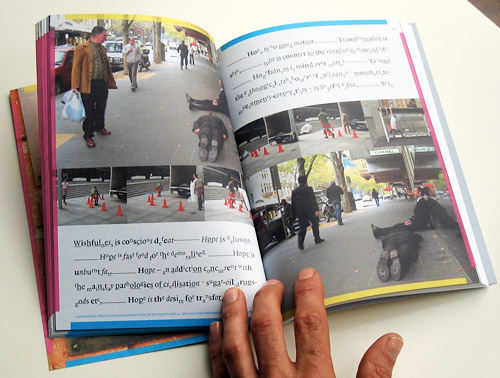In David Graeber's book
Possibilities: Essays on Hierarchy, Rebellion and Desire he redresses earlier anthropological social categories such as joking and avoidance relations.
The body in the domain of joking, one might say, is constituted mainly of substances – stuff flowing in or out. The same could hardly be true of the body in the domain of avoidance, which is set apart from the world... While joking bodies are necessarily apiece with the world (one is almost tempted to say "nature") and made up from the same sort of materials, the body in avoidance is constructed out of something completely different. It is constructed of property. p21.
Relations of 'common substance' are also recalled.
...where an entirely material idiom of bodily stuff and substances can be seen as the basis for bonds of caring and mutual responsibility between human beings. p23.
He goes on to talk about the possibility of sex between two people in terms of sharing food, not as one person consuming the other (as mentioned in
an earlier post). Sharing, here, is experienced outside of an 'owning' relation (of avoidance). Graeber, like
Hamish Morgan a few weeks ago in this garden, brings in
Marcel Mauss.
Mauss has also argued that in giving a gift, one is giving a part of oneself. If a person is indeed made up of a collection of properties, this would certainly be true... Gift giving of the Maussian variety is never, to my knowledge, accompanied by the sort of behaviour typical of joking relations; but it often accompanies avoidance. p23.
A
double white Australia line policy, an expression fixé I have used in poems and other forms of thinking since 2001, is used to describe how colonialism (relations of avoidance) pierces and separates, disenfranchises and prepares Aboriginal land and resources for private use and sale. A double white Australia line is a policy of all governments since occupation.
Colonialism also brought Christmas to the continent, imposing a gift-economy – guilt – on the people who had practiced (for 40,000 years) an extremely intelligent and sustainable gift-ecology.

Another's Brilliance (1' concrete), Patrick Jones, Meanjin, Poetics, 2/2001


No comments:
Post a Comment